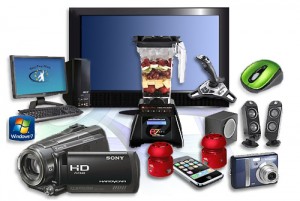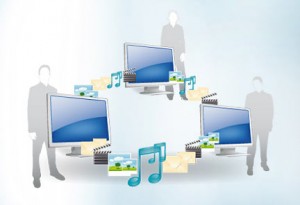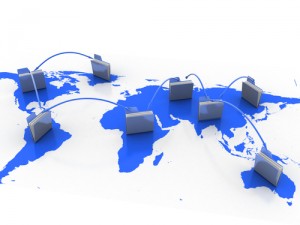Consumer Electronics: Making the World a Better Place
Posted by Editor in Information Technology on Jul 1st, 2013 | 0 commentsThe advent of consumer electronics paved way to a better and easier life. There are some people who are heavily relying on consumer electronics that they think they cannot exist without it. That is a drawback but we should see the coming of electronics positively. Consumer electronics are devices invented and manufactured for everyday use. The market is swarming with consumer electronics these days. There are radios, televisions, refrigerator, computer, mobile phones, etc. We are fortunate to enjoy the luxuries consumer electronics bring. The least thing that we can do is to use it wisely.

If we can afford everything, we are free to purchase every consumer electronic available but if we can only afford few things, we should begin with the things we need most. We should be acquainted with the different types of consumer electronics. Here it goes:
Entertainment
If we have money, we don’t mind spending some or a bulk for fun. Let’s just make sure not to exhaust all our money for entertainment’s sake. If we have radios, high definition television sets, home theatre sets and gaming consoles, we are inspired to go home always.
Communications
Conveying our messages or keeping in touch is easier today with the help of mobile phones, telephones and internet (instant messaging and social networking sites). Communication is very important in the conduct of our everyday life. It will minimize misunderstanding and misinterpretations. We should not abuse this power because if it is abused and overused, it can cause conflict and rift.
Office
The last type of electronics is found in the workplace. We need devices like telephone, printers, fax machines, photocopiers, etc, to make our transactions or dealings faster and easier.
File Server and Its Purpose
Posted by Editor in Information Technology on Jun 10th, 2013 | 0 commentsIt is a computer unit attached to a certain network, usually a local area network. Its main function for businesses in Singapore is to be the central data storage of various machines, and to back-up important data. The usual server is configured just to receive and send files, and will not cater any other activities for users. It can also be configured to disseminate data on the internet with the use of HTTP (hypertext transfer protocol) or FTP (file transfer protocol).

A file server can operate either with specialized or standard operating systems. Luckily, today’s operating systems are built to let any kind of computer unit perform its file sharing in Singapore as main servers to ease communication. Linux, UNIX, and Windows are just some of the most frequently used as server operating systems. Network-attached storage units or a backup server can use standard operating systems or specialized operating systems with limited functions.
A file server is usually encountered in instances where file sharing is needed. Large networks use servers to facilitate file sharing between several units. Networks that use centralized servers won’t have difficulty in terms of security because all documents are located in a single hardware which makes it easier to back-up.
A file server sometimes experiences performance degradation, especially when the request for data is very high, may it be an internet-attached server or not. Distributed denial-of-service or denial of service attacks have been commonly used against servers attached to the internet. In these cases, attackers send so many malicious data requests flooding the server and losing or delaying the legitimate requests. Having a backup server can greatly help you from experiencing this problem.

You can also configure any modern computer to serve the function of a file server. Your personal computer that executes file sharing tasks of music, movies, documents, games, etc., is already working as a file server. In business organizations, servers are usually dedicated computers, equipped with large storage devices. These businesses use specialized computers that are specifically designed to function as a backup server. These highly designed devices use hardware that are meant to maximize the unit’s file sharing and storing performance, and also includes very basic output/input processing commands.
Purposes
To help you decide if your Singapore business should invest for a file server or not, here are its primary purposes that no other system hardware can do.
• Regularly runs a system back-up for all your files. By having a server, you will have lesser or no possibility at all of losing any of your important files. For businesses, losing important files mean losing time and money, which every businessman don’t want to happen.
• Securing data. To access data in a server, the user has to login with a username and password.
• Centralized system. This will make every data easily accessible to the authorized people.

